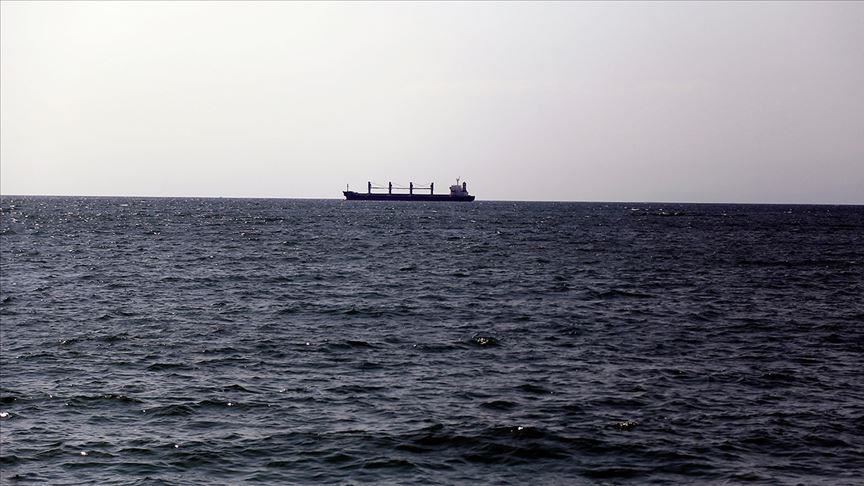Oil tankers attacks see surge after US-Iran sanctions
Since May, 6 oil tankers, 2 Saudi oil facilities have been targeted
 FILE PHOTO
FILE PHOTO
ANKARA
Attacks on oil tankers and violence have risen in the Gulf region since the U.S. administration re-imposed sanctions on Iranian oil this spring.
In April, Washington announced that it would end waivers for sanctions on countries importing oil from Iran.
The move came as a part of the White House’s policy of exerting “maximum pressure” on Iran with a view to bringing the country’s petroleum revenue to zero.
Since then, the region has been rocked by several separate attacks, including the latest on Thursday when two oil tankers were targeted in the Gulf of Oman.
The attack came only one day after Yemeni Iran-back Houthi rebels targeted Abha Airport in Saudi Arabia and left dozens of people injured. Also, last month, four oil tankers were sabotaged and Saudi oil facilities were targeted.
Tensions have been rising between the U.S. and Iran since last year, when the U.S. unilaterally withdrew from a nuclear pact between the Islamic republic and the five permanent members of the UN Security Council plus Germany.
The Trump administration has pursued a number of actions meant to scuttle the agreement, including the re-imposition of U.S. sanctions on Iranian oil.
In response, Tehran vowed to continue exporting oil despite the U.S. sanctions and threatened to close the Strait of Hormuz if it is prevented from using the strategic Persian Gulf waterway.
Key strait
The strait is one of the global oil trade’s most important waterways. The lion’s share of petroleum from the region’s top producers -- including Saudi Arabia, Iraq, and Kuwait -- passes through the strait en route to oil-thirsty markets in the Far East.
On Thursday, two oil tankers were targeted in the Gulf of Oman amidst heightened tensions in the region.
According to Iran's Islamic Republic News Agency (IRNA), the two tankers have sustained damage, leading to the evacuation of 44 personnel to Iran's Bandar-e-Jask seaport.
The oil tankers are operated by Japan were identified as M. T. Front Altair and Kokuka Courageous.
The attacks coincided with the official visit of Prime Minister Shinzo Abe, who arrived in Tehran late Wednesday, marking the first visit of a Japanese premier to the country in four decades.
Abe’s visit comes nearly two weeks after Trump visited Japan -- one of U.S. allies barred from trade with Tehran -- and endorsed Abe’s efforts to encourage Iran to engage in dialogue.
Commenting on the attacks Thursday, Iran Foreign Minister Javad Zarif described them as "suspicious".
Zarif said the attacks took place while the Japanese premier "was meeting with Ayatollah Khamenei for extensive and friendly talks."
The attacks come in the wake of Wednesday's Houthi attack on Abha Airpot in Saudi Arabia which left at least 26 civilians from various nationalities injured.
Since 2015, a Saudi-led military coalition has launched a devastating military campaign aimed at rolling back gains of the Iran-backed Houthi rebels who overran much of the country in 2014.
Iran accused
In late May, U.S. National Security Adviser John Bolton, during a visit to the United Arab Emirates (UAE), accused Iran of being behind attacks on oil tankers off the UAE.
Speaking in Abu Dhabi, the UAE capital, Bolton said the attacks took place "by naval mines almost certainly from Iran."
The attacks go back to early May when the UAE said four vessels, including two oil tankers, were hit by sabotage attacks near its territorial waters, but without blaming anyone for the attacks.
Iran’s Foreign Ministry, for its part, later described the attacks as “worrying and regrettable.”
In mid-May, armed drones carried out attacks on two oil pump stations in Saudi Arabia's East-West pipeline, which carries Saudi oil from the eastern province to the port of Yanbu.
Saudi Arabia sent a letter to the UN Security Council blaming Iran and Yemen’s Houthi rebel group for the attack.
Anadolu Agency website contains only a portion of the news stories offered to subscribers in the AA News Broadcasting System (HAS), and in summarized form. Please contact us for subscription options.


